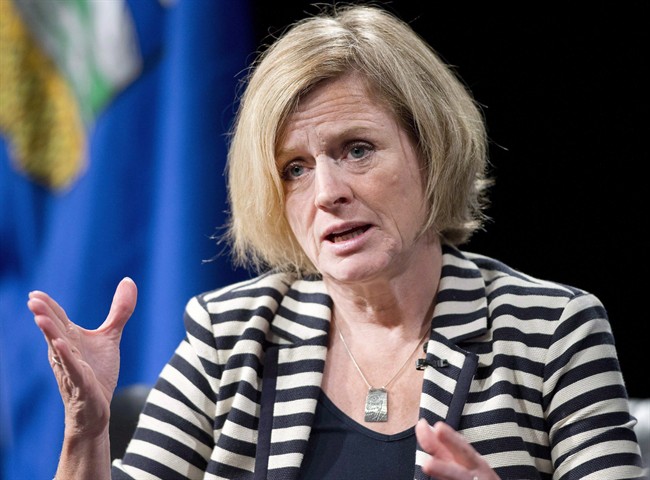CALGARY – Alberta Premier Rachel Notley says she sympathizes with the plight of energy companies and their employees due to low oil prices, but her government isn’t in a position to offer any short-term lifelines.

The Canadian Association of Petroleum Producers has estimated 36,000 jobs in the oil and gas sectors have been shed so far this year.
“We know of course that where these jobs disappear that it’s very hard for families. It’s very hard for communities. It’s very hard … for the people who have lost their jobs,” Notley said in Calgary on Friday.
“Quite frankly the energy industry is addressing and succumbing to pressures that are international in scale. And as much as I would like to be able to inject some mechanism of ameliorating the price of oil, it’s quite frankly something that’s beyond the capacity of this government.”
There has been more bad news this week. Calgary-based Cenovus Energy reported that it has reduced its workforce by 700 for the second half of the year on top of 800 earlier job cuts.
And Husky Energy said Friday it is planning further job reductions and asset sales even though it has already cut 1,400 contract workers and full-time employees.
A Conference Board of Canada report this week predicted the oil extraction industry will post a $2.1-billion pre-tax loss in 2015 compared with profits of $6 billion last year.
Revenues are expected to fall by 22 per cent. Notley said the only thing the New Democrats can do is attempt to help diversify and kick-start the economy to try to generate more jobs.
It’s her hope that some contractors currently working in the oil and gas sector will benefit from billions of dollars in capital expenditures announced in the Alberta budget this week.
The budget promises to use low interest rates and a downturn in the economy to ramp up construction and refurbishment of roads, schools and hospitals.
It projects $34 billion in capital spending over the next five years and $47 billion in total debt by 2020.



Comments